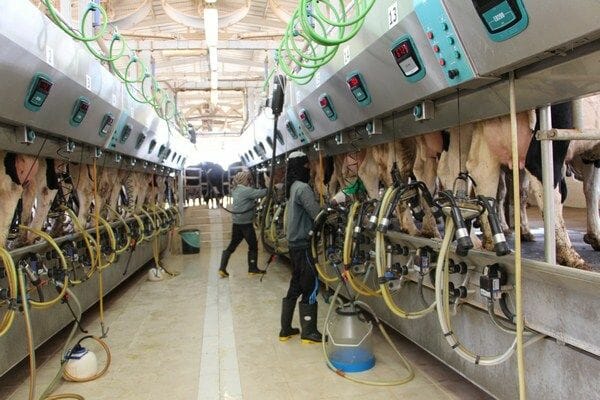To do so, he said, his firm has signed a cooperation agreement with Ramat Negev Regional Council and Ramat Negev Industries. The new facility, he added, will operate within the jurisdiction of the regional council in southern Israel.
$5 million of desert finance
The Eilat Technology Center (ETC), a subsidiary of Arieli Capital, will plan and lead the establishment. Total investment earmarked for the project will be around $5 million, with Arieli taking the lead in this venture, supported by funds from the Ramat Negev Regional Council and other investors. The center will be located near Ashalim and will focus on areas of specialization in the region, including general agriculture, desert agriculture, marine agriculture, and cannabis.
One going assumption, Haviv notes, is that any fledgling center there is well poised to tap into agricultural know-how from the nearby Desert Agricultural Center. Over the last fifty years, researchers and technologists there have conducted hundreds of applied research projects in a range of fields: efficient water usage and irrigation; solving of common problems such as soil diseases and pests; development of new products and the acclimatization of existing products; development of agricultural techniques for improving the profitability of crops; or conducting and overseeing of international projects in the field of highly advanced agriculture.
For pilot projects and field trials, the Ramat Negev region offers expansive land to work on; it is the largest municipality in Israel, covering 4.2 million dunams (1.050 million acres) and accounts for about 22% of Israel’s total land area. Vegetables are the main crops grown in the region and the total annual output is about $177 million (NIS 629 million). About 70% of total production goes for exports, primarily to Europe and the U.S. There is also a brackish water desalination plant in the region which produces 3.5 million cubic meters of high-quality water for use by the local communities and in agriculture.
In a statement commenting on the plans, Yankale Moscowitz, R&D director of the Ramat Negev Regional Council and of the council’s Agricultural Center, described the move as “a much-needed effort in these times.”
Other hopes for desert miracles
Elsewhere in the Middle East, attention is also turning sharply to investments in and around desert farming as the Covid-19 outbreak ratchets up tensions around food security. As Bloomberg reported recently, Saudi Arabia has earmarked two initiatives worth $665 million to support farmers and facilitate food imports, according to Muneer Alsahali, general manager of the Agricultural Development Fund. “That takes the fund’s budget to 5.5 billion riyals this year, which is almost triple 2019’s amount and includes more money for overseas investments,” write Bloomberg’s reporters.
In Abu Dhabi, a funding and tax incentive tranche of $272 million was allocated last March for developing a desert-based agtech ecosystem, according to government officials. And as my AFN colleague Jessica Pothering uncovered this year, further large tranches are on their way toward desert farming ecosystems in the Gulf region, not only in the United Arab Emirates, but also in countries like Kuwait.
Where do you see agrifoodtech ecosystems emerging out of the desert? Let us know by dropping a note to [email protected]





